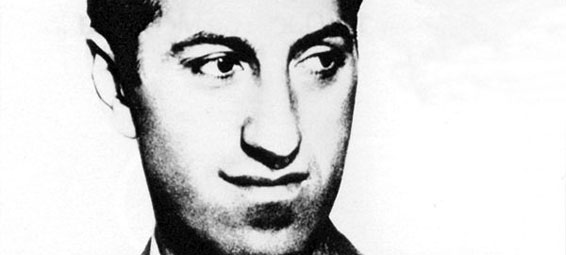George Gershwin, alas, did his job too well: he absorbed music from the past, was influenced by his contemporaries, and produced a body of music that was innovative, appealing, and enduring. He had an unsurpassed gift for melody and the ability to create new but viable musical structures. As a result, he is one of the most approachable of all serious composers, with music that not only stands up to fairly rigorous examination but which also can be appreciated by virtually any listener.
For his reward, seventy-six years after his tragically premature death at the age of 38, Gershwin has been sentenced to the realm of the “pops” concert.
And maybe it’s time to appeal the sentence.
First, in defense of the current situation, Gershwin is a perfect entry-level composer for the budding classical music fan, and thus has a natural spot in pops programming. Granted, building audiences for the classical series is not necessarily the function of the pops concert. Still, the listener who first encounters the soloist-orchestra configuration of Rhapsody in Blue can readily understand what’s going on in any concerto.
Also, in defense of music directors who never get around to programming Gershwin on the classical series, there simply isn’t that much of it: one nice big symphonic poem, one concert overture, one full-fledged multi-movement piano concerto, three shorter single-movement works for piano and orchestra, a few assorted odds and ends, and that’s it. Orchestras used to have a pretty good excuse to program concert versions of the opera Porgy and Bess, but, in the last three decades, opera companies including the Met on down, have placed that masterpiece in its proper perspective on the operatic stage. The songs, many written for the Broadway stage, are gems of artistic invention, but they weren’t orchestrated by Gershwin, and probably do belong on the pops concert circuit.
The Dallas Symphony has sometimes done its part to embrace Gershwin as part of the main classical repertoire. Not so long ago, in summer of 2007, the orchestra collaborated with pianist Anne-Marie McDermott and guest conductor Justin Wilson to present one of the most revelatory, interesting, and memorable evenings of my long years of concert-going, in the form of an evening devoted to Gershwin’s four works for piano and orchestra. Still, it wasn’t quite totally on the front burner: it was in the summer, and it was one night only, and it was just Gershwin and no one else.
With that, I’ll switch to the role of the plaintiff, and point out that Gershwin can indeed stand up next to other composers on a symphonic concert. The Concerto in F compares favorably with many other standards of the concerto repertoire, and can take its place in the concerto slot of any symphonic concert next to Tchaikovsky or Beethoven or Bartok—and, these days, hardly ever does. The Second Rhapsody, sadly neglected (and occasionally unfairly bashed, as it was by my friend Scott Cantrell at the Dallas Morning News back in 2007) is, in the right hands, possibly Gershwin’s greatest symphonic work, with an engaging underlying pessimistic tone. Either the Rhapsody in Blue or the Second Rhapsody would make an intriguing companion on an symphonic subscription concert for any of a number of shorter piano concertos or one-movement works for piano and orchestra—for instance, Mendelssohn’s, Schumann’s, Liszt’s, or even the wonderful Piano Concerto by Gershwin’s frequent tennis partner, Arnold Schoenberg. Indeed, it would be refreshing and would provide a totally new perspective to hear Gershwin not on an all-Gershwin concert, or not packaged up like the side dish in a microwave dinner with lighter pops fare (which only serves to enforce the idea that Gershwin is somehow not quite up to the revered canon of concert music). At least ever other year or so, Gershwin belongs next to Stravinsky, and Brahms, and Mozart.
For now, I’ll take my Gershwin where I can get it. Yes, I’m headed to the Meyerson to hear Marvin Hamlisch to conduct the Dallas Symphony in an all-Gershwin concert, and I’m expecting to enjoy it – especially if I listen to some Schoenberg in my car on the way home.





